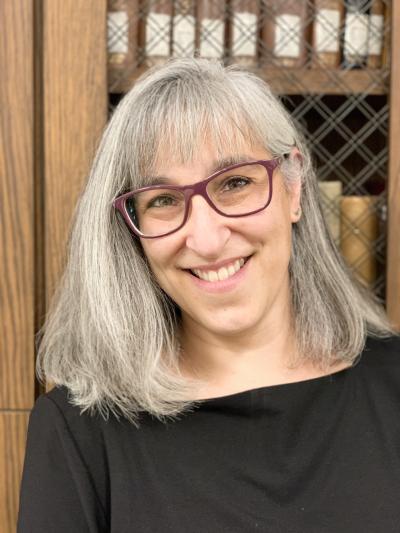
Rena Selya examines the life of Nobel-winning biologist Salvador Luria, whose passion for science was equaled by his commitment to political engagement in Cold War America.

Rena Selya examines the life of Nobel-winning biologist Salvador Luria, whose passion for science was equaled by his commitment to political engagement in Cold War America.
In this episode, we speak with Rena Selya, archivist, Research Assistant Professor and Associate Director of the Program in the History of Medicine at Cedars-Sinai Medical Center. Rena is the author of Salvador Luria: An Immigrant Biologist in Cold War America.
Blacklisted from federal funding review panels but awarded a Nobel Prize for his research on bacteriophage, biologist Salvador Luria (1912–1991) was as much an activist as a scientist. In this first full-length biography of Luria, Rena Selya draws on extensive archival research; interviews with Luria's family, colleagues, and students; and FBI documents obtained through the Freedom of Information Act to create a compelling portrait of a man committed to both science and society.
In addition to his work with viruses and bacteria in the 1940s, Luria broke new ground in molecular biology and cancer research from the 1950s to the 1980s and was a leader in calling for scientists to accept an educational and advisory responsibility to the public. In return, he believed, the public should rely on science to strengthen social and political institutions.
Luria was born in Italy, where the Fascists came to power when he was ten. He left Italy for France due to the antisemetic Race Laws of 1938, and then fled as a Jewish refugee from Nazi Europe, making his way to the United States. Once an American citizen, Luria became a grassroots activist on behalf of civil rights, labor representation, nuclear disarmament, and American military disengagement from the Vietnam and Gulf Wars. Luria joined the MIT faculty in 1960 and was the founding director of the Center for Cancer Research. Throughout his life he remained as passionate about his engagement with political issues as about his science, and continued to fight for peace and freedom until his death.
Recorded on November 22, 2023.
Closed captioning available on YouTube.
Insights from the Collections
The Consortium's collections provide many opportunities to learn more about the history of biology and politics. See the Consortium search hub to find more.
Materials related to this topic include:
Carnegie Institute of Washington Papers, Cold Spring Harbor Laboratory
Max Delbrück Papers, California Institute of Technology
Genetics Society of America Papers, American Philosophical Society
Irwin G Gunsalus Papers, University of Illinois Urbana-Champaign
David D. Henry Papers, University of Illinois Urbana-Champaign
James R. Killian Papers, Massachusetts Institute of Technology
Salvador E. Luria Papers, American Philosophical Society
Salvador E. Luria Publicity File, Massachusetts Institute of Technology
Everett I. Mendelsohn Papers, Harvard University
Lloyd Morey Presidential Papers, University of Illinois Urbana-Champaign
Recombinant DNA Controversy History Collection, Massachusetts Institute of Technology
George G. Stoddard Presidential Papers, University of Illinois Urbana-Champaign
Julius A. Stratton Papers, Massachusetts Institute of Technology
James D. Watson Papers, Cold Spring Harbor Laboratory
Join a related Working Group for monthly discussions:
Applied Medical History
Objects, Images, and Spaces of Health
See also work from our fellows:
Terry M. Christensen, John Archibald Wheeler: A Study in the Pedagogy, Philosophy, and Politics of 20th Century Physics
Nayanika Ghosh, Genes and Gender: Sociobiology and the Emergence of a Political Critique of Science
Phillip Honenberger, The Philosophy of Biology in North America, 1959-2009: Disciplinary Symbioses, Constitutive Tensions, and Branching Lineages
Joseph Martin, Industrial Patronage and the Cold War University
Emily Merchant, Molecular Eugenics
© 2026 Consortium for History of Science, Technology and Medicine | Copyright Infringement